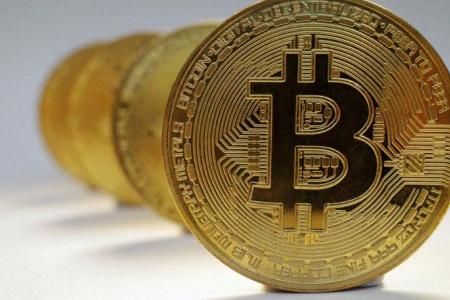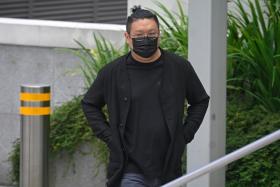Singapore court freezes $9.6m in cryptocurrency stolen by unidentified perpetrators
In a novel case, an American entrepreneur who had more than US$7 million (S$9.6 million) worth of cryptocurrency stolen from him has won a court injunction in Singapore to stop the unidentified perpetrators from dealing with the misappropriated property.
A worldwide Mareva injunction was granted by the High Court to freeze the assets of the unknown persons, up to the value of the stolen cryptocurrency.
The court has also ordered two cryptocurrency exchanges operating in Singapore to disclose information and documents relating to accounts that were credited with part of the stolen Bitcoin.
In written grounds of decision issued on Friday (March 4), Justice Lee Seiu Kin said the dispute raised interesting and novel points of law, including whether the court can grant interim orders against persons whose identities are at present unknown.
The names of all the parties have been redacted in the published grounds.
The plaintiff filed a suit in the High Court last year to trace and recover 109.83 bitcoin and 1497.54 ethereum.
He named the first defendants as "any person or entity who carried out, participated in or assisted in the theft of the plaintiff's cryptocurrency assets on or around Jan 8, 2021, save for the provision of cryptocurrency hosting or trading facilities".
Prior to the theft, the cryptocurrencies were accessible through two digital wallets that allow a private key to be stored on the user's mobile phone.
Both wallets employed recovery seeds - a series of randomly generated words - that allow a user to gain access to his cryptocurrencies in the event that his phone was lost or destroyed.
In January last year, the plaintiff and seven acquaintances were on vacation in Mexico.
He was out on the night of Jan 7 and needed some money, so he called one member of the group at his apartment to retrieve some cash from the safe.
He read out the safe combination to the acquaintance, who repeated it while some of the others were in the same room.
The acquaintance brought the cash to the plaintiff, and they returned to the apartment in the early hours of Jan 8.
That evening, the plaintiff discovered that his bitcoin and ethereum had been transferred without his knowledge or consent.
He suspected that the perpetrators had obtained his recovery seeds by accessing his safe after the combination was read aloud.
A portion of the stolen bitcoin, less than US$1 million worth, was later traced to digital wallets controlled by the two cryptocurrency exchanges.
The plaintiff, who was represented by Mr Danny Ong, sought a proprietary injunction and a worldwide freezing injunction against unidentified defendants.
Justice Lee found that the court has the jurisdiction to grant interim orders against unidentified persons - as long as the description is sufficiently certain to identify those who are included and those who are not.
He pointed to past court decisions in Britain and Malaysia and noted that there was also nothing in Singapore's court rules that requires a defendant to be specifically named.
Justice Lee also dealt with the issue of whether cryptocurrency was capable of giving rise to proprietary rights which could be protected via a proprietary injunction.
Proprietary injunctions are sought by plaintiffs who believe they are the rightful owners of a certain property held by the defendant.
After considering the case law, Justice Lee concluded that cryptocurrencies satisfied the definition of a property right.
Get The New Paper on your phone with the free TNP app. Download from the Apple App Store or Google Play Store now


